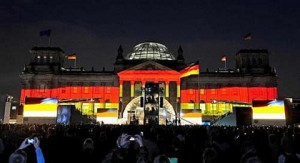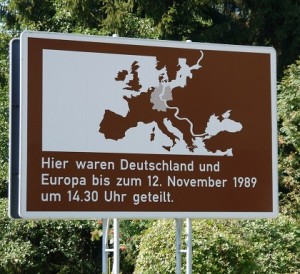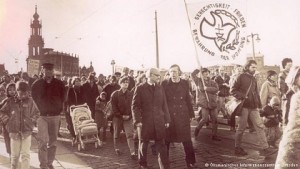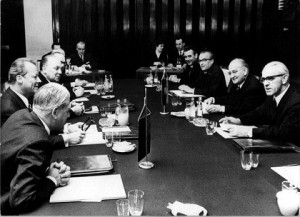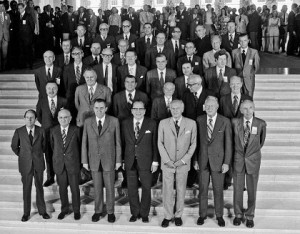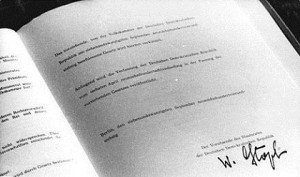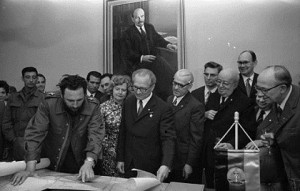The story of German wine is a captivating journey through centuries of tradition, craftsmanship, and innovation. From the rolling vineyards along the Rhine and Mosel rivers to the quaint winemaking villages nestled in the valleys, Germany has been an integral part of the wine world for over a millennium. In this article, we explore the rich history … [Read more...]
German History Timeline
References: A Country Study. US Library of Congress Country Studies … [Read more...]
The Reunification of Germany and Its Aftermath
The East German and West German economies at the time of unification looked very similar. They both concentrated on industrial production, especially machine tools, chemicals, automobiles, and precision manufactures. Both had a well-trained labor force and an important export component, although their exports went largely in opposite directions. … [Read more...]
Opening of the Berlin Wall and Unification
November 9, 1989 will be remembered as one of the great moments of German history. On that day, the dreadful Berlin Wall, which for twenty-eight years had been the symbol of German division, cutting through the heart of the old capital city, was unexpectedly opened by GDR border police. In joyful disbelief, Germans from both sides climbed up on the … [Read more...]
The Last Days of East Germany
In January 1988, Honecker paid a state visit to France. By all indications, the long stretch of international isolation appeared to have been successfully overcome. The GDR finally seemed to be taking its long-sought place among the international community of nations. In the minds of the GDR's old-guard communists, the long-awaited international … [Read more...]
The Peace Movement and Internal Resistance in GDR
The GDR leadership welcomed protests against weapons and war as long as they occurred in the FRG. However, when a small group of East German pacifists advocating the conversion of "swords into plowshares" demonstrated in 1981 against the presence of Soviet missiles on GDR soil, as well as against the destruction of the environment by the dumping of … [Read more...]
Relations Between the Two Germanys
Although Honecker pursued a tough policy against internal dissidents and carefully guarded the GDR's unique identity as the state in which the old Marxist dream of socialism had become a reality, he was keenly aware of the necessity for communication and reasonable working relations with the FRG. His dream of being received at the White House as a … [Read more...]
The Conference on Security and Cooperation in Europe
Keen to gain international recognition of its sphere of interest and believing that such recognition would solidify its grip on its East European satellite states, the Soviet Union, beginning in the early 1970s, sponsored an initiative calling for the convening of a Conference on Security and Cooperation in Europe (CSCE). For the West, such … [Read more...]
The New East German Constitution and the Question of Identity
Although the GDR had finally achieved its goal of international recognition with the signing of the Basic Treaty in December 1972, renewed concerns about the stability and identity of the GDR as a second German state drove the SED Politburo toward a policy of reaffirming the socialist nature of the state. As early as 1971, Honecker had launched a … [Read more...]
The Honecker Era, 1971-1989
Ulbricht's successor in East Germany was Erich Honecker. Born in 1913 in Saarland, Honecker joined the Communist Party of Germany (Kommunistische Partei Deutschlands--KPD) in 1929. As a full-time functionary of the party, he continued his work in the underground movement after Hitler came to power in 1933 and until arrested by the Nazis in 1935. … [Read more...]
- « Previous Page
- 1
- 2
- 3
- 4
- 5
- …
- 13
- Next Page »

